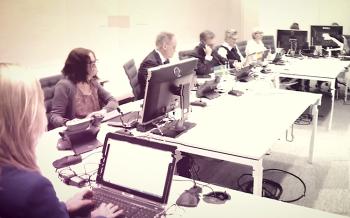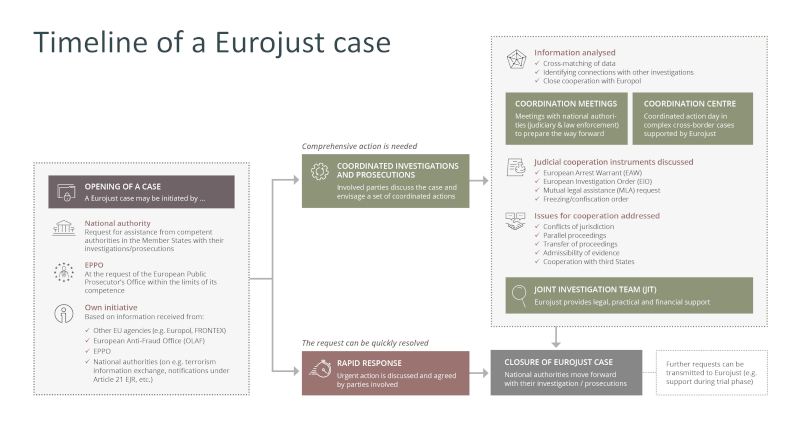
Eurojust assists in a vast range of investigations. Each case is different and requires an individual approach. Often, prosecutors must act immediately to locate and apprehend suspects. In such cases, national authorities can rely on Eurojust’s unique on-call services, for example by facilitating the swift execution of a European Arrest Warrant (EAW), a freezing order or the collection of evidence using a European Investigation Order (EIO). Other times, an investigation is built slowly and methodically, entailing months, or even years, of careful planning, coordination and discussion, with Eurojust playing a coordinating role. Four key means of support provided by Eurojust are joint investigation teams, EU judicial cooperation tools, coordination meetings and coordination centres.
The cases brought before Eurojust either involve two or more EU Member States or a Member State and a non-EU State. Sometimes cases involve crimes committed in a single Member State that have repercussions beyond its borders. Eurojust offers Member States its vast experience and expertise in judicial cooperation, including a range of tools to handle problems such as conflicts of jurisdiction, extradition, admissibility of evidence, and the freezing and recovery of assets. As Eurojust accommodates authorities from all Member States and various third States, it can respond to requests rapidly, sometimes helping to resolve a case within hours.

